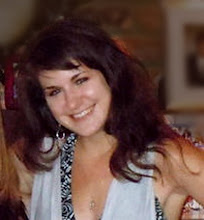Dedication
First, I would like to dedicate this book to my wife whose love and loyalty has always been my rock to lean on and Sue, one of my nurses, whose love and care has helped to keep me alive and without whose help I probably would not have written this book. I also dedicate this book to all the Staff and Employees of DeKalb General Hospital in Smithville, Tennessee, for the dedicated care that resulted in prolonging my life without regard to the prognosis of my disease.
Prologue
For several years when I would repeat some interesting experience that I was fortunate or unfortunate enough to be involved in people have said, “Why don’t you write a book?”. This seemed ridiculous to me as my idea of an author was someone who hid himself away from society and only wrote when he was inspired.
I was too busy living and also was fully convinced that writing a book was beyond my capabilities.
In April of 1971 I discovered I had Amytrophic Lateral Sclerosis or “Lou Gherig” disease. On May 9, 1974, I was permanently attached to a respirator and during the many long days that followed, I became fascinated with the idea of writing a book.
When anyone writes about his life, there is a period from the time of his brith until he starts accepting responsibilities and contributing to tohers that is of little, if any, value to a reader. The purpose of this prologue is to cover this period of my own life. I reflect upon this period merely because some of my childhood experiences contributed to my reactions later on.
On Thanksgiving morning, November 27, 1919, I was born in Rutherford County, Tennessee. During the first few years of my life, there was a succession of movers because at theat time my father was a farmer. Just previous to school age we moved to Woodbury, a small town in Middle Tennessee, and stayed there until I finished grade sschool. In 1932 we moved to Nashville, Tennessee, where my fater was employed as a postal clerk.
The above information was given merely as a basis for a general discussion of childhood experiences that affected my later life. While I was a very small child, I either had more than all the other kids in the neighborhood, or I had nothing at all. I can remember once of hanging my sock up for Christmas and a mischievous brother had put a sweet potato in it and that was all I had until I cired, and my father went tot eh store and bought me one orange. I remember another Christmas that I received a tricycle, a wagon, and a car that I could ride in. All of my life has been this pattern to extreme happiness. This pattern as a child helped me to adjust to these extremes later on in life.
When I was about fourteen, my father ran a grocery in Nashville and one night when we checked up, he handed me the money and said he was not going home. Needless to say I was frightened to death. I became a part of what I had always heard was a “broken home”. But do you know that rather than to wind up becoming involved in illegal and immoral activity and using the “broken home syndrome” s an excuse, I think my resistance to wrong doing was strengthened, not because I was adverse to the illegality or the immorality of and act, but because I was afraid that my little mother would be hurt. My mother was born of poor, but honest parents on an inexcessible ridge in the mountains of Cannon County. She had no education and no money, but an undying idea that her familoy was a little better than anybody else in the world and “Thank God” we inherited just enough of this that we never got to where we didn’t care who we were.
My mother and I returned to Woodbury where I completed my junior and senior years of high school. I was a marginal starter on an excellent basketball team and quarterback on the first football team the school ever had. These last two years in high school were destined to be the most important days of my entire life. This is where I met the girl who later became my wife. After graduation I sold Bibles, did some farm work, started to law school and was rather aimless in everything I attempted as anyone would be who had no definite plan in their life.
I joined the service March, 1940. I went overseas in September, 1941. On the troop ship going over, we traveled at night with a complete blackout indicating that our relationship with the Japanese was more imminently dangerous than we were later led to believe. I was assigned to the 4th Chemical Company at Fort McKindly, Manila, P.I.
No chemical warfare had been used since World War I, but small companies had been retained on the outside chance that we again might find the need for a defense against this sort of activity. The 4th Chemical Company was a group of about forty-five men who had been assigned to give instructions in chemical warfare to the Philippine Army. Duty was light, and we only held classes four days a week.
When I turned in the night of December 8, 1941[1], worried about an inventory that I had to do in the supply room and particularly worried about accounting for four Elgin G.I. watches that had been missing for God knows how long, and impossible to trace, little did I know that morning we would embark upon a most fantastic experience that would change all of our lives.

No comments:
Post a Comment